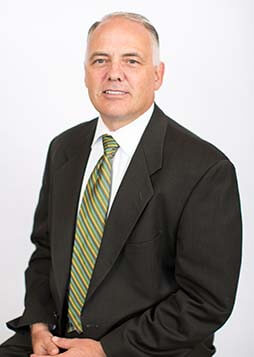Hyperopia (Farsightedness) Treatment in Kansas City, MO
Comprehensive Eye Care Services in Kansas and Missouri
If hyperopia ( farsightedness ) is affecting your vision the doctors of Discover Vision Centers in Kansas City, MO are here to help. Farsightedness when we are younger may only affect or decrease one’s ability to see up close but with age it can decrease intermediate and distance vision as well so one would need glasses to correct all three vision points: near, intermediate and distance.
What Is Hyperopia
Hyperopia ( farsightedness ) is also known as hypermetropia. The eye is similar to a camera with focusing elements or lenses at the front and film ( retina ) at the back of the eye to process the image. The goal of treatment with glasses, contacts or surgery is to move the focus point as perfect as possible onto the retina.
Hyperopia Symptoms & Signs
Symptoms of hyperopia become more significant with higher levels and advancing age. Anyone over age 40 will have blurred if not completely non-functional vision without glasses for near, intermediate and distance vision. For those younger it varies upon the level of hyperopia. The first symptoms come with near objects such as reading or using a computer or smart phone. Eventually symptoms progress even to far distance. Some patients will squint to bring images into sharper focus. In the process of trying to overcome blurred vision eye strain, visual fatigue, and headaches may present. If these symptoms occur the patient is a candidate to be seen for evaluation and determine the best treatment approach.
Hyperopia Eye Treatment Options We Provide
Hyperopia surgery for suitable candidates includes LASIK, PRK, and intraocular lens implants in the form of Refractive Lens Replacement with monofocal, toric, trifocal, and Light Adjustable Implants.
LASIK – short for Laser-Assisted in Situ Keratomileusis – is the most commonly performed technique for laser vision correction. Most patients are candidates for LASIK, and the procedure can correct hyperopia, in addition to treating other conditions such as myopia & astigmatism. Like all procedures we offer at Discover Vision Centers, LASIK is a safe and effective vision correction treatment.
PRK – also known as photorefractive keratectomy and advanced surface ablation- is a hyperopia surgery that is an alternative to LASIK. PRK is performed with an excimer laser to reshape the front surface of the cornea to treat nearsightedness, farsightedness, and astigmatism. PRK is offered to patients who are not candidates for LASIK due to their unique eye structure.
Hyperopia is also corrected with IOLs, or intraocular lens implants. An intraocular lens is surgically implanted – replacing your natural lens – to correct any refractive errors and restore good vision.
Trifocal Lens Implant
Trifocal implants can be used to treat hyeropia and associated presbyopia so patients can have clear vision at distance, intermediate and near range.
Light adjustable implants can be used to treat hyperopia and presbyopia. A slight offset of the two eyes is done so the three focal points of distance, intermediate and near can be see.
Eyeglasses can be used to treat a large range of farsightedness with or without astigmatism.
Soft and hard contact lenses can be used to treat farsightedness as a non-surgical alternative to glasses.
At Discover Vision Centers, we provide routine and emergency eye care covering a wide range of vision concerns, from near- and farsightedness to eye diseases like glaucoma.
How Do Eye Doctors Diagnose And Treat Farsightedness?
Farsightedness is diagnosed during a total eye exam at Discover Vision Centers. We will perform some basic tests, measuring the way light is hitting your retinas and having you read the letters on an eye chart.
What Causes Farsightedness?
A common question among patients is what causes hyperopia? Hyperopia, also known as farsightedness, is caused by the eye being shaped in a way that focuses light behind the retina, rather than directly on it. If you have farsightedness, you will see far away objects clearly, while close objects will be more blurry. It’s not uncommon for children to be born with farsightedness and to grow out of the condition as their eye structure changes. This is called age-related farsightedness.
Why Choose Discover Vision for Hyperopia Surgery?
Technology
Our experienced ophthalmologists and optometrists at Discover Vision Centers are world leaders in vision care and laser vision surgery. We offer cutting-edge technologies in hyperopia correction, with your safety & comfort as our highest priority.
Expertise
At Discover Vision Centers, we have a comprehensive team of top vision experts that work in tandem to provide you with the highest quality of care, no matter your eye concern. Our refractive specialists each have their own area of expertise, and you’ll receive treatment from the surgeon who’s best suited to your unique needs.
Results
When it comes to hyperopia correction, our top vision specialists are committed to delivering results. Most patients experience a drastic improvement in their unaided vision after vision correction surgery at Discover Vision Centers – results that dramatically increase their quality of life.
Does Insurance Cover Treatment for Farsightedness?
Your insurance may offer a discount for hyperopia correction, but you should plan on the majority, if not all of the cost as an out-of-pocket expense. Discover Vision has several options to help make surgery more affordable. We offer See Today, Pay Later financing through CareCredit, subject to credit approval. We also encourage you to use FSA and HSA (flexible spending and health savings accounts) to pay for your procedure tax-free.
Areas We Serve
Discover Vision Centers proudly serves the Greater Kansas City and surrounding areas. We have 9 locations and 3 surgery centers to serve you. Our clinics are located in Blue Springs, Harrisonville, Lee’s Summit, Independence, The Northland, Raymore, Leawood, and Legends.
Our Surgeons
Dr. Doane is fellowship-trained in refractive surgery with both laser techniques and intraocular implants. He is actively involved in FDA trials for evolving treatments for hyperopia.
Reviews
Contact us
FAQs
How does hyperopia impact vision?
Hyperopia blurs vision and to varying degrees depending on the amount of farsightedness and the patients age. It can cause difficulty seeing at near, intermediate and far distances. Headache, eye strain and visual fatigue can be experienced by patients.
How do you treat hyperopia with astigmatism?
Hyperopia can be addressed by non-surgical treatments and surgical procedures. Non-surgical treatments included glasses and contact lenses. Surgical treatments can include LASIK or PRK on the cornea or clear part of the eye or lens implant surgery inside the eye.


